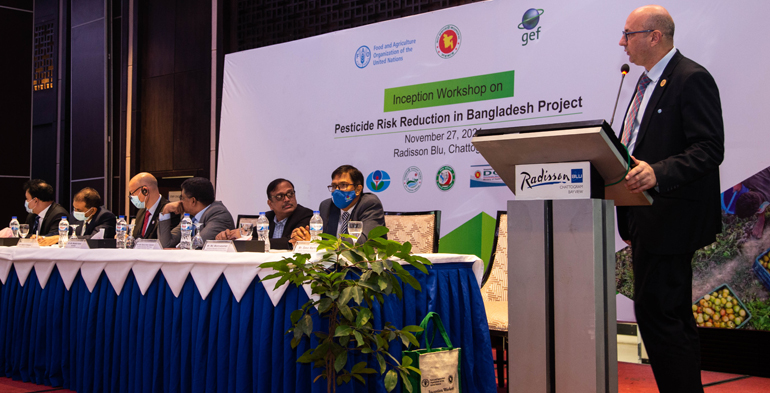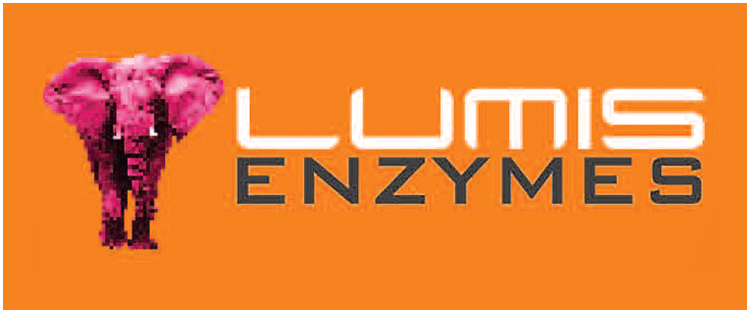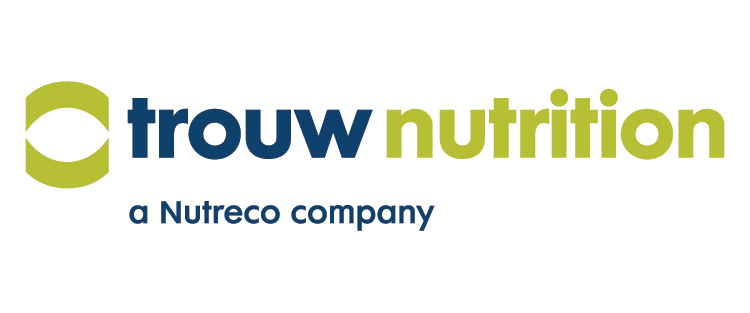
Agrilife24.com desk:An international operation to remove approximately 1000 tonnes of hazardous pesticide, which have been stored for 37 years in the heart of Chattogram, is set to start next month.
Specialists will clear the now banned DDT pesticide from a depot a before shipping it to Europe for safe incineration in specialist facilities.
The Food and Agriculture Organization of the United Nations (FAO) is assisting the Government of Bangladesh to carry out the operation. The work will be undertaken through FAO’s Pesticide Risk Reduction in Bangladesh project, jointly implemented by the Department of Environment (DoE) and the Ministry of Environment, Forest and Climate Change (MoEFCC). An inception workshop for the project took place today.
Robert D. Simpson, FAO Representative in Bangladesh, said: “MoEFCC and FAO will oversee theimminent clean-up and safe disposal of this large stockpile of DDT which poses a health and environmental hazard. This toxic chemical has no place for use in modern agriculture or food processing.”
The DDT-full name Dichlorodiphenyltrichloroethane was imported in 1985. On delivery, the product was deemed non-compliant with the technical specification and was stored at a central site in Chattogram (Chittagong). The stockpile has remained in Bangladesh’s second largest city ever since. DDT is very persistent: the consignment in Chattogram has exactly the same concentration of active ingredient today as it did when it was delivered nearly four decades ago.
The FAO project behind the clean-up operation will also support the government to update national regulations in relation to the Stockholm Convention on Persistent Organic Pollutants and develop national capacity for the management and safe disposal of hazardous waste. The project will also support government actions to reduce risks from pesticides used in food production and processing, with a focus on fish drying and pesticide containers.
Stakeholders at today’s inception workshop were provided with an overview of the project and discussed suggestions for successful implementation.More than 60 representatives attended from various organizations and government departments, includingthe Ministry of Family Health and Family Welfare, Department of Agricultural Extension, Department of Fisheries, Directorate General of Health Services, University of Chittagong, Bangladesh Fisheries Research Institute, Bangladesh Agriculture Research Institute, plus farmers and dry fish producers.
Chief guest was Mr. Md. Mostafa Kama, Secretary, Ministry of Environment, Forest and Climate Change. Mr. Md. Moniruzzaman, Additional Secretary (Environment), Ministry of Environment, Forest and Climate Change, wasspecial guest. Mr. Md. Ashraf Uddin, Director-General, Department of Environment, chaired the workshop.Chattogram City Corporation and Metropolitan Police were also represented.
A specialist company will take about three to four months to remove the DDT, under strict controlled conditions, and then ship thewaste to France. “The DDT removal is highly technical and requires specialist knowledge and equipment. Procedures must comply with national and international laws, rules and regulations,” said Saso Martinov, the project’s Senior Technical Advisor. He added: “In addition to the DDT removal, FAO willpromote alterative, low-hazard pest control options. We will support the government’s ongoing efforts to transition towards more sustainable practices in agricultural pest management and the conservation of natural resources.”
As well as the DDT operation, the project proposes piloting a disposal and recycling strategy for empty pesticide containers.It will also help to tighten pesticide customs control, training staff to conduct chemical analysis on goods. The project will also promote safer food processing in the fish-drying industry and throughout the agricultural sector. Even though DDT has been banned in Bangladesh for more than 20 years, it still used widely in dried fishproduction and in some vegetable production.
The project is funded by the Global Environment Facility (GEF) and co-financed by the Government of Bangladesh and FAO.





















